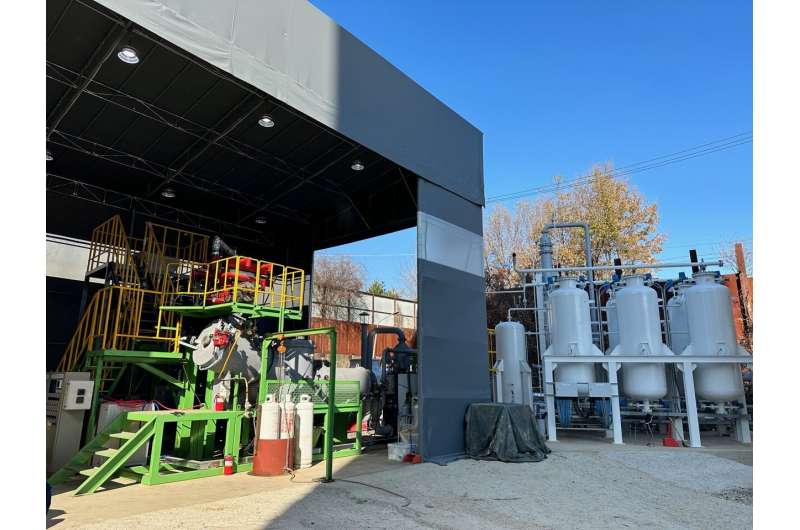
A dedicated research team has created a groundbreaking process in South Korea to turn waste plastics, including those tough-to-recycle thermoset types, into high-quality syngas. The project, led by Dr. Chong-Pyo Cho at the Korea Institute of Energy Research (KIER), promises a sustainable solution for plastic waste.
As the world grapples with waste and resource shortage issues, recycling technologies are becoming more vital. Currently, the global market for recycling plastic waste is valued around 100 trillion KRW and is expected to grow at an annual rate of 8.1%, potentially reaching 173 trillion KRW by 2030.
Plastics fall into two main categories: thermoplastics, which can be reshaped with heat, and thermoset plastics, which harden after being cured and are notoriously hard to break down. Thermoset plastics are valued for their high temperature and chemical resistance, making them suitable for use in cars and electronics.
Though beneficial, thermoset plastics usually end up in landfills or incinerators after use because they require extremely high temperatures for disposal, contributing significantly to environmental pollution.

Dr. Cho and his team have pioneered an oxy-fuel combustion process that effectively transforms mixed thermoset waste plastics into syngas, which is essential for producing hydrogen.
This is Korea’s first continuous process that enhances efficiency and successfully cuts down tar—an unwanted byproduct of gasification—by 93.4%, making it fit for producing commercial-grade syngas.
The research team utilized an innovative oxy-fuel combustion technique to eliminate nitrogen from the air, alongside a regenerative melting furnace that maintains internal heat. This allowed them to achieve temperatures of up to 1,300°C, thereby setting up a seamless flow from raw materials to gasification and significantly improving overall efficiency.
During this process, the amount of tar generated was significantly lowered. Tar has a sticky nature and can clog the machinery, disrupting operations.
For effective breakdown of tar, temperatures exceeding 1,000°C are necessary. Unfortunately, traditional plastic waste processing typically operates below 800°C, leading to significant tar accumulation. Although additional systems can be installed to purify tar, they can raise costs considerably.
Thanks to their continuous operation approach, the team managed to limit tar production to just 0.66 mg/Nm³ (milligrams per normal cubic meter), without the use of a separate purification system. This marks a 93.4% reduction compared to the accepted tar levels needed for syngas in chemical fuel production.
The prototype process demonstrated so far can handle one ton of mixed thermoset waste plastics daily, yielding about 0.13 kg of hydrogen for every kilogram of waste. Based on these promising results, the team has secured three domestic patents and applied for an international one, paving the way for future commercialization.
Dr. Cho expressed optimism about their achievement, noting, “This is a major step in enhancing gasification efficiency and significantly reducing tar generation using homegrown technology. We aim to scale this process up to two tons a day and continue our research for commercial application.”
If you would like to see similar Tech posts like this, click here & share this article with your friends!

